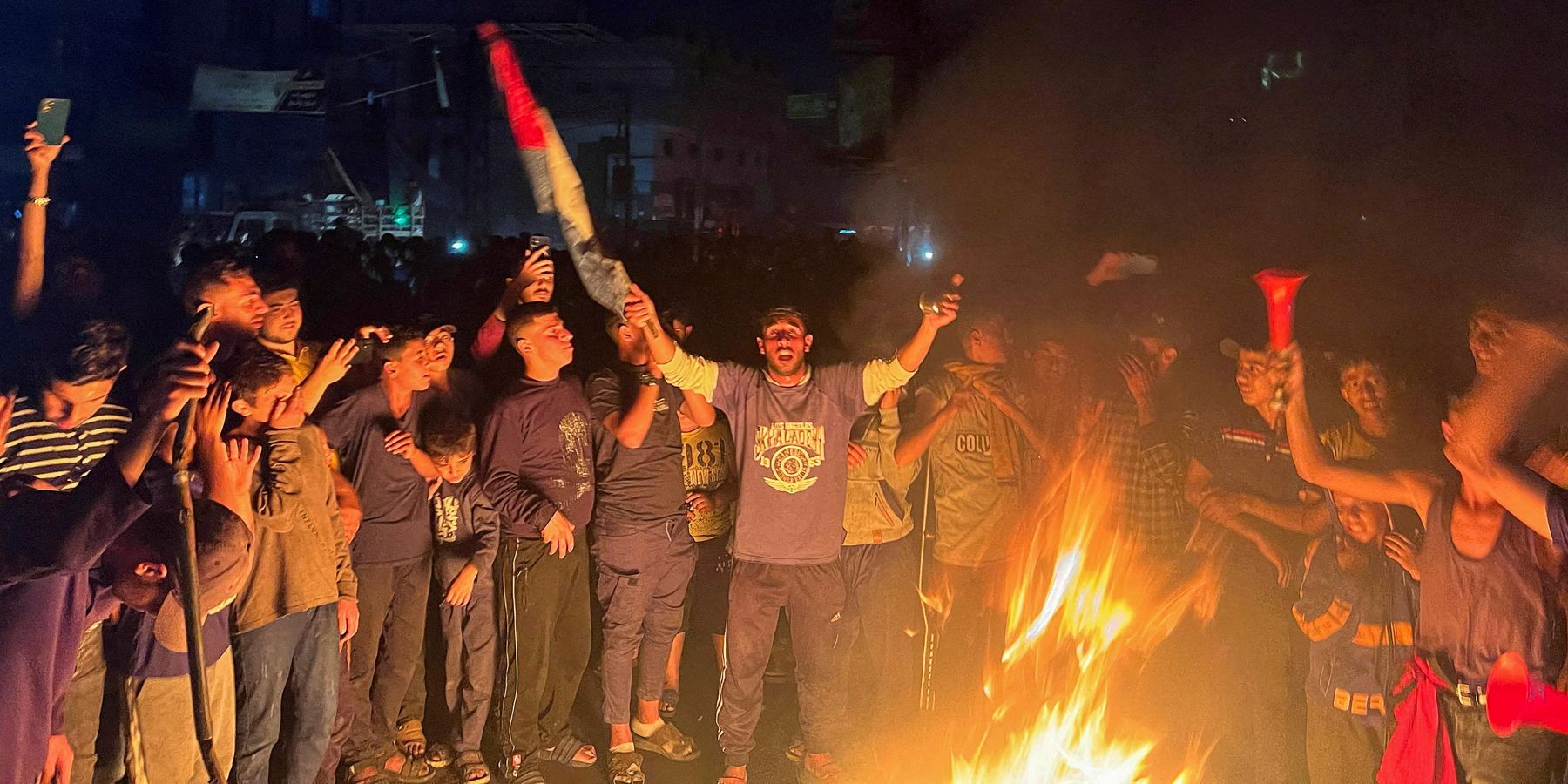Israel was supposed to be letting in more aid. But a move to seize the Rafah Crossing on the Gaza side and shut down all aid flowing into the strip indicates otherwise, as the crossing was a key pipeline for humanitarian assistance.
Until now, it was the only crossing not controlled by Israel — it's supposed to be under the control of Egypt, per a 2007 agreement.
According to an Israeli official, the operation "involved special ground troops and the Israeli air force" and "resulted in the killing of 20 Gazan combatants, as well as the discovery of Hamas infrastructure that included three operational tunnels." The official added that the operation is ongoing.
The seizure of the crossing comes hours after reports that Hamas accepted the latest deal on the table for a ceasefire. There are actually pictures of Palestinians celebrating in the streets. The Washington Post reported that upon the news, Israeli negotiators were headed to Cairo to hammer out details. However, reflecting remarks from Prime Minister Benjamin Netanyahu, Israeli officials said they would press on with the Rafah attacks, which began Monday with airstrikes, anyway. In addition, they indicated that Hamas was asking for more than the deal the Israelis and U.S. had put on the table.
“Even though Hamas’ proposal is far from Israel’s requirements, Israel will send a delegation of mediators to exhaust the possibility of reaching an agreement under conditions that would be acceptable to Israel,” Netanyahu's office said late Monday.
The Egyptian Foreign Ministry, for its part, said the Israeli military operation in Rafah threatens efforts to achieve a ceasefire in Gaza. “This dangerous escalation threatens the lives of more than a million Palestinians who depend primarily on this crossing, as it is the main lifeline of the Gaza Strip,” it said in a statement Tuesday.
The EU's top foreign diplomat, Josep Borrell, said Israel's much awaited ground invasion of Rafah had begun. “The land offensive against Rafah has started again, despite all the requests of the international community, the U.S., European Union member states, everybody asking Netanyahu not to attack Rafah,” he told reporters in Brussels. “I am afraid that this is going to cause again a lot of casualties, civilian casualties, whatever they say.”
With the closing of the Rafah crossing, in addition to the shutdown of the nearby Karem Abu Salem crossing, the aid issue just got more dire, say UNRWA officials, as tens of thousands of Gazans have been told to evacuate Rafah city and are headed to evacuation zones in the coastal area of al-Mawasi.
There is speculation about where the U.S. military may be setting up its humanitarian causeway, which is supposed to surge aid into Gaza from the beach, but questions abound about the safety and capacity of this mission. One report said it would be south of the IDF corridor bisecting the strip near the evacuation zone above al-Mawasi. Either way, it will also bring U.S. troops perilously close to a live combat zone.
Story is developing
- Why Egypt can't and won't open the floodgates from Gaza ›
- Israeli bombs drop on Rafah as Gazans flee their homes ›
















